Seeing Clearly, Caring Deeply, Your Partner in Animal Health
Endoscopy Solutions for Pet Hospitals

Pet Hospitals
Key Endoscopes for Veterinary Care
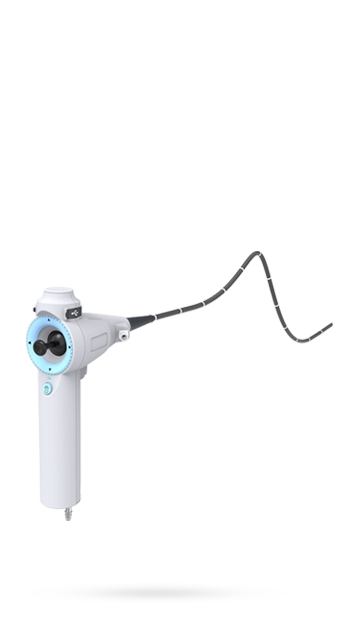
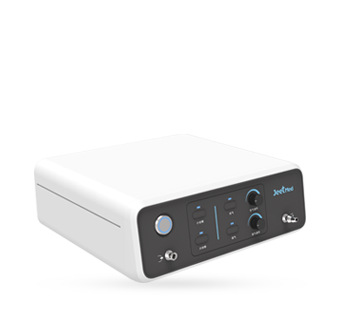
Aspiration & Suction Pump JTA-300
Learn More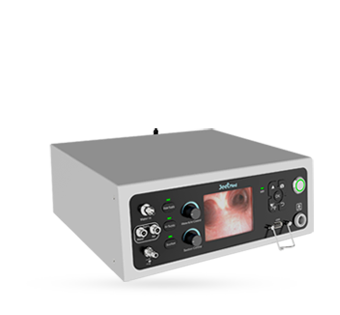
Endoscopic Workstation JTA-310
Learn More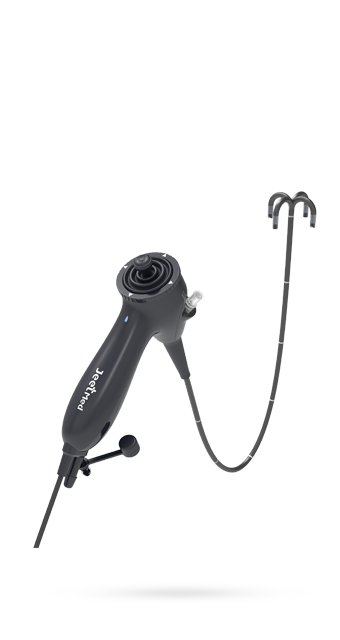
Veterinary Flexible Otoscope RAE-201
Learn More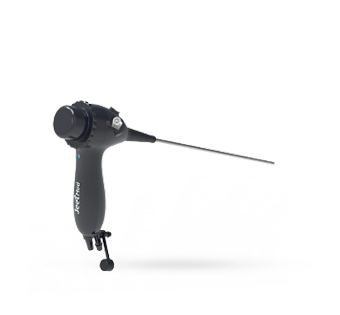
Rigid Veterinary Endoscope RAE-301
Learn More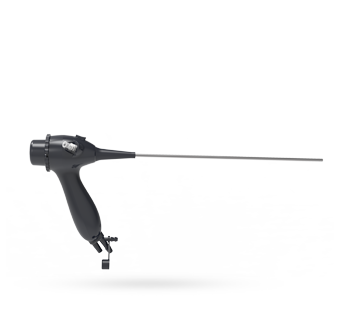
Veterinary laparoscope RAE-302
Learn MoreEndoscopes Application
Flexible Endoscopes
Types
Gastroscope
For examining the gastrointestinal tract.
Rhinoscope
For nasal passages.
Applications
Gastrointestinal Endoscopy:
Diagnose and treat issues in the esophagus, stomach, and intestines. Useful for biopsies, removing foreign bodies, and assessing conditions like gastritis.
Rhinoscopy:
Diagnose and treat conditions in the nasal passages, such as nasal tumors, polyps, and chronic infections.
Key Features
Flexibility
Navigates through complex anatomical structures.
High-Resolution Cameras
Provides detailed images for accurate diagnosis.
Advanced Lighting
LED lighting for clear visibility.
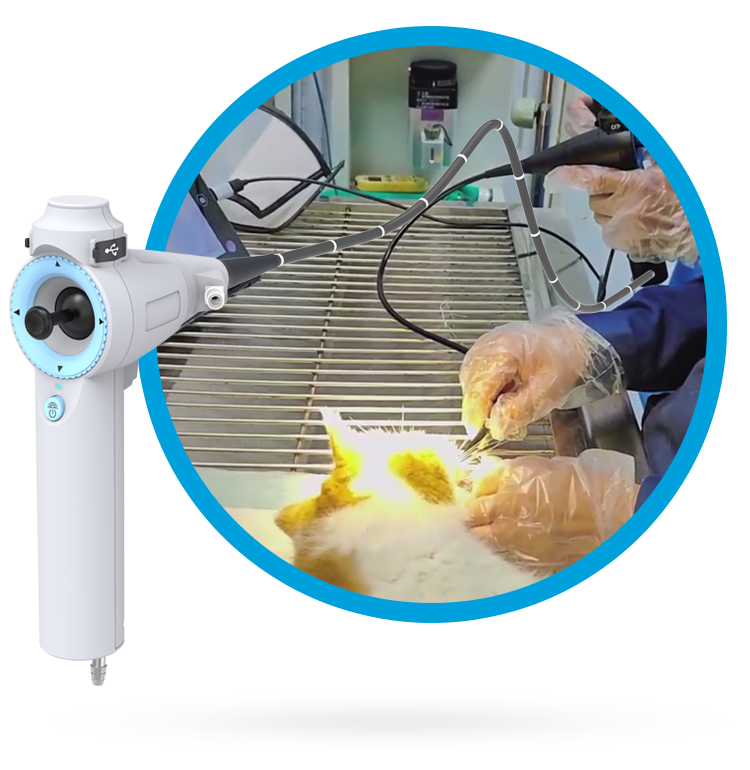
Endoscopes Application
Rigid Endoscopes
Types
Otoscopes
For ear examinations
Cystoscopes
For bladder and urethra examinations
Arthroscopes
For joint examinations
Applications
Otoscopy:
Examine the ear canal and tympanic membrane for infections, tumors, or foreign bodies.
Cystoscopy:
Inspect the bladder and urethra, perform biopsies, and remove stones or tumors.
Arthroscopy:
Diagnose and treat joint conditions, such as ligament injuries or arthritis.
Key Features
Rigid Construction
Provides precision and durability.
High-Definition Imaging
Ensures excellent clarity.
Sterilization
Easier to sterilize for surgical use.
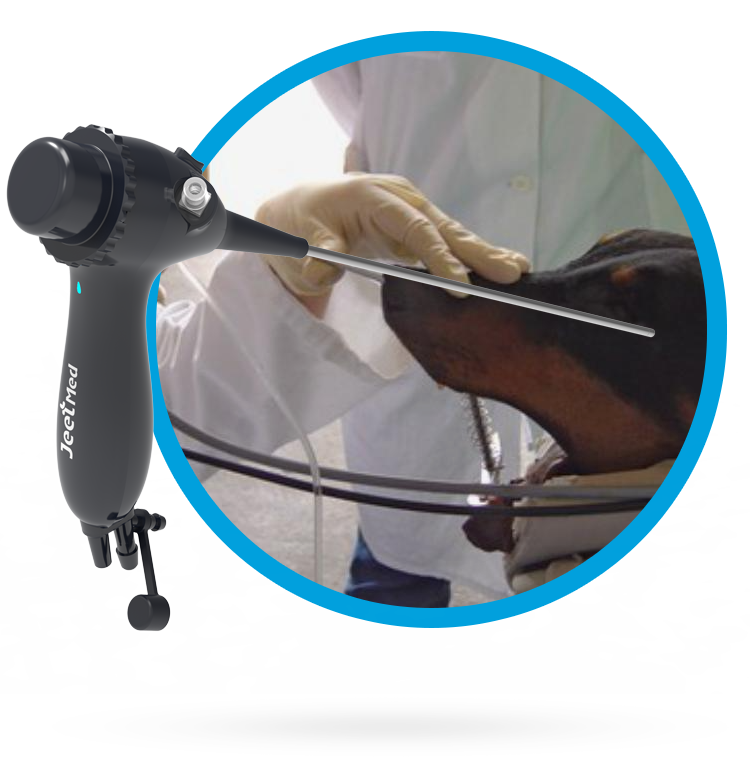
Endoscopes Application
Laparoscopes
Types
Diagnostic Laparoscopes
For internal abdominal examinations.
Surgical Laparoscopes
Equipped with channels for surgical
Applications
Diagnostic Laparoscopy:
Examine internal organs like the liver, kidneys, and intestines.
Surgical Laparoscopy:
Perform minimally invasive surgeries, including spays, biopsies, and tumor removals.
Key Features
High-Resolution Imaging
Essential for detailed internal views.
Insufflation Capability
Allows inflation of the abdominal cavity for better access.
Versatility
Suitable for both diagnostic and surgical procedures.
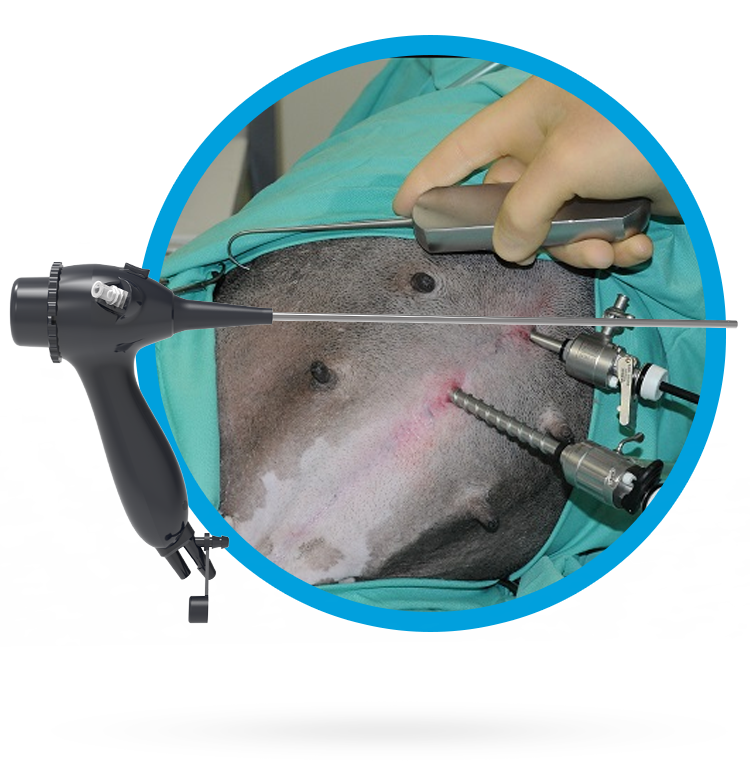
Endoscopes Application
Multi-functional Veterinary Endoscopes
Types
For various applications like gastrointestinal, respiratory, and urinary tract examinations.Applications
Versatile Use
Can be adapted for multiple types of endoscopic procedures, providing a high level of flexibility in a pet hospital setting.
Key Features
Integrated Video System
Provides real-time visualization and recording.
High-Definition Display
Offers excellent image quality.
Ease of Use
User-friendly interfaces and controls.
Portability

Mobile Units:
Important for large pet hospitals with multiple departments or mobile veterinary services.
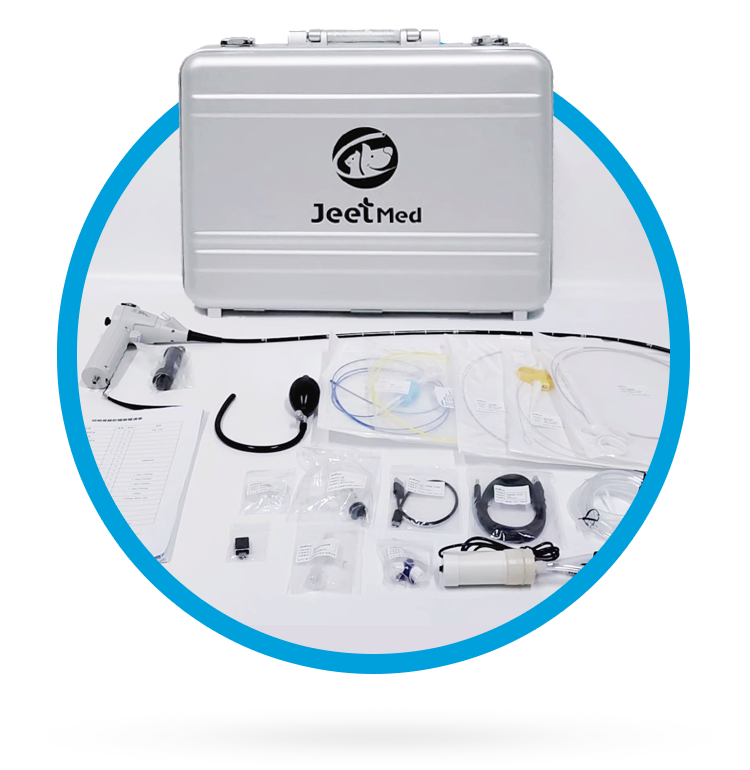
Buying Guide
How to Choose Veterinary Endoscopes for Veterinary Hospitals?

Types of Endoscopes:
Flexible Endoscopes:Ideal for examining the gastrointestinal tract, respiratory system, and other areas requiring maneuverability.
Rigid Endoscopes:Suitable for procedures like arthroscopy and laparoscopy where a straight, sturdy scope is needed.

Length and Diameter:
The length of the endoscope should be sufficient to reach the target area in small animals. The diameter should be appropriate to navigate through the anatomical structures without causing injury.

Image Quality:
High-definition cameras and superior optics are crucial for clear visualization of internal structures.

Durability and Flexibility:
The endoscope should be robust enough to withstand repeated use in animals and flexible enough to navigate through their anatomy.
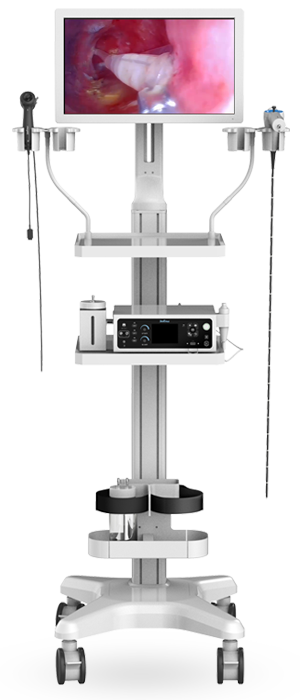

Compatibility with Accessories:
Check compatibility with necessary accessories such as biopsy forceps, graspers, irrigation and suction systems, and insufflators.

Portability:
Consider the portability of the equipment, especially if it needs to be used in various locations such as farms or different veterinary clinics.

Technical Support and Training:
Ensure the availability of technical support and training for the veterinary team to effectively use and maintain the endoscope.

Cost and Warranty:
Evaluate the cost in relation to the features and benefits provided. Check for warranty and after-sales support to ensure long-term reliability and service.
Pet Hospitals
Investing in Endoscopes for Better Pet Outcomes
High-Quality Diagnostic Endoscopes
Increased Treatment Efficiency
Comprehensive Training and Support
Reliable After-Sales Service
Need Assistance?
As a leading player in our industry, we are committed to fostering mutually beneficial partnerships that drive success and growth.
Contact NowWant to Become Our Distributor?
We provide high-quality products, professional training, market support and technical support to help you develop the market and create success together!
Distributor- *Name
- *Tel
- *Title
- *Content
